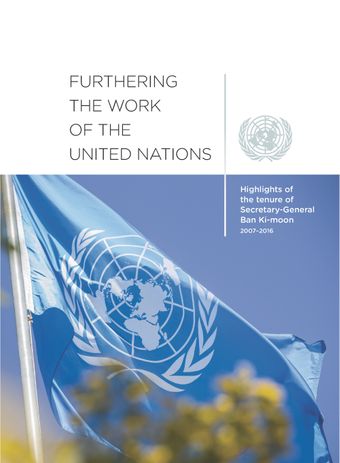Progress on the disarmament agenda

- Author: Kim Wan-Soo
- Main Title: Furthering the Work of the United Nations , pp 132-150
- Publication Date: August 2016
- DOI: https://doi.org/10.18356/1e160332-en
- Language: English
Secretary-General Ban Ki-moon took office at a time of accelerating change in the nature of threats and challenges to international security as well as of increasing polarization on key questions of disarmament. The world order had become increasingly complex and multipolar, with non-State actors gaining considerable capabilities to conduct and sustain acts of armed violence. By 2007, early post-cold war progress on diminishing reliance on nuclear weapons had begun to falter as major powers turned away from multilateralism, strategic self-restraint and reliance on the rule of law. As armed conflict transitioned from an inter-State phenomenon to a largely internal one, small arms and light weapons emerged as the leading killer. The unregulated and illicit trade in conventional arms, coupled with ceaseless annual increases in global military expenditures, continued to fuel armed violence and jeopardize the goals of the United Nations in the areas of peace, security and development. The Organization’s disarmament machinery had already experienced a full decade of paralysis, leading the Secretary-General, in his first personal address to the Conference on Disarmament in 2008, to describe that body’s successes as “distant memories”.
© United Nations
ISBN (PDF):
9789210583237
Book DOI:
https://doi.org/10.18356/b528170b-en
Related Subject(s):
United Nations
Sustainable Development Goals:
-
From This Site
/content/books/9789210583237s003-c003dcterms_title,dcterms_subject,pub_keyword-contentType:Journal -contentType:Contributor -contentType:Concept -contentType:Institution105
/content/books/9789210583237s003-c003
dcterms_title,dcterms_subject,pub_keyword
-contentType:Journal -contentType:Contributor -contentType:Concept -contentType:Institution
10
5

